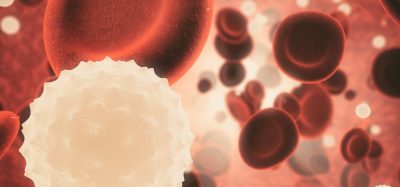New compound keeps cells alive and functioning in a healthy state
Posted: 7 October 2019 | Rachael Harper (Drug Target Review) | No comments yet
A world-first compound that can keep cells alive and functioning in a healthy state could be revolutionary for medical emergencies.


A world-first compound that can keep cells alive and functioning in a healthy state when they otherwise would have died has been developed.
The ability to quickly prevent cell death, or apoptosis, could be game-changing for medical emergencies and procedures, such as minimising cellular damage after heart attacks or preserving organs for transplants.
There could be applications for keeping cells alive to prevent degenerative diseases”
The study was led by Professor David Huang, Professor Guillaume Lessene and Professor Benjamin Kile at the Walter and Eliza Hall Institute of Medical Research.
Biomarkers aren’t just supporting drug discovery – they’re driving it
FREE market report
From smarter trials to faster insights, this report unpacks the science, strategy and real-world impact behind the next generation of precision therapies.
What you’ll unlock:
- How biomarkers are guiding dose selection and early efficacy decisions in complex trials
- Why multi-omics, liquid biopsy and digital tools are redefining the discovery process
- What makes lab data regulatory-ready and why alignment matters from day one
Explore how biomarkers are shaping early drug development
Access the full report – it’s free!
Professor Huang said the ability to stop unwanted cell death could be invaluable for the future of medical care: “Acute injury can cause cells to die, rapidly leading to the loss and weakening of tissues and muscles. In such circumstances, being able to prevent uncontrolled cell death could improve a patient’s recovery or even their chances of survival.”
Apoptosis is controlled by the BCL-2 family of proteins and some of these promote cell survival, while others drive cell death. Cells are committed to die once either the proteins BAK or BAX is activated.
Professor Kile said the compound successfully disabled BAK. “In laboratory models we found we could override apoptosis and keep cells functioning,” he said. “We have shown it is possible to halt the biochemical cascade that triggers cell death, right at the point where it begins.”
The proof-of-concept drug was developed through extensive medicinal chemistry following a high-throughput screening (HTS) campaign of a quarter of a million potential small drug molecules.
…we found we could override apoptosis and keep cells functioning”
The researchers are now looking to apply the knowledge to developing cell death blockers that are effective and safe in humans.
Professor Huang said the next steps would also involve applying the knowledge gained to more advanced models of disease: “There could be applications for keeping cells alive to prevent degenerative diseases.”
The preclinical findings were published in Nature Chemical Biology.
Related topics
Cell Cultures, Drug Development, High-Throughput Screening (HTS), Hit-to-Lead, Protein, Research & Development, Small molecule
Related conditions
Heart attack
Related organisations
Walter and Eliza Hall Institute of Medical Research
Related people
Professor Benjamin Kile, Professor David Huang, Professor Guillaume Lessene








